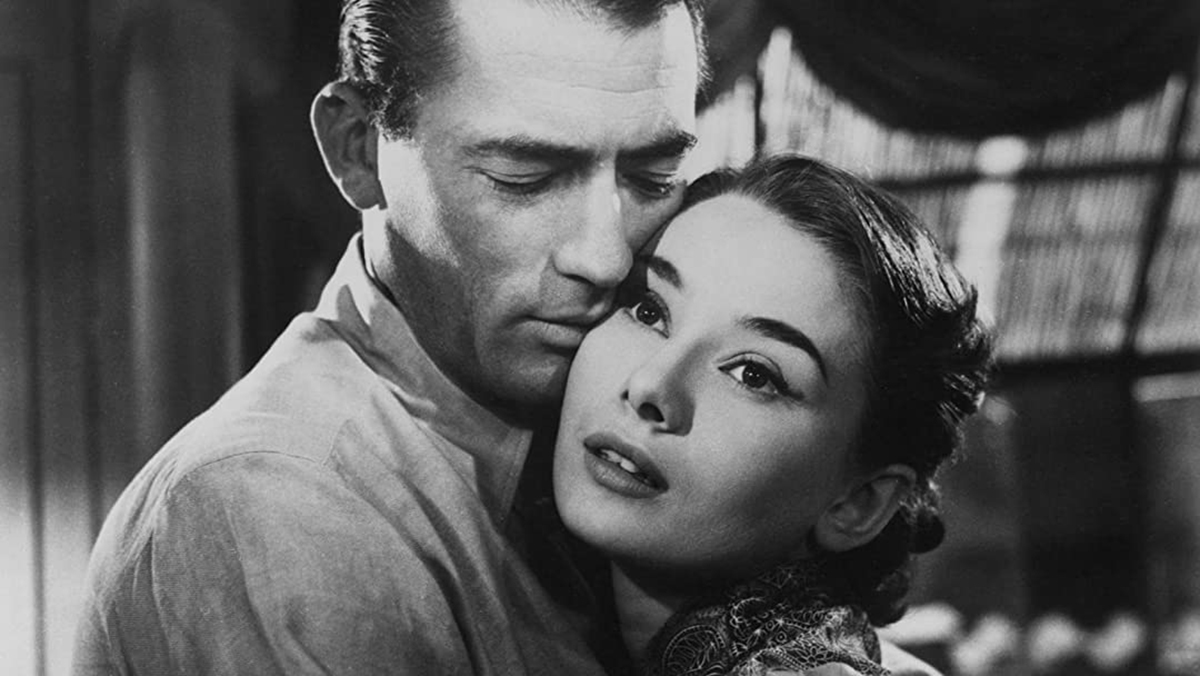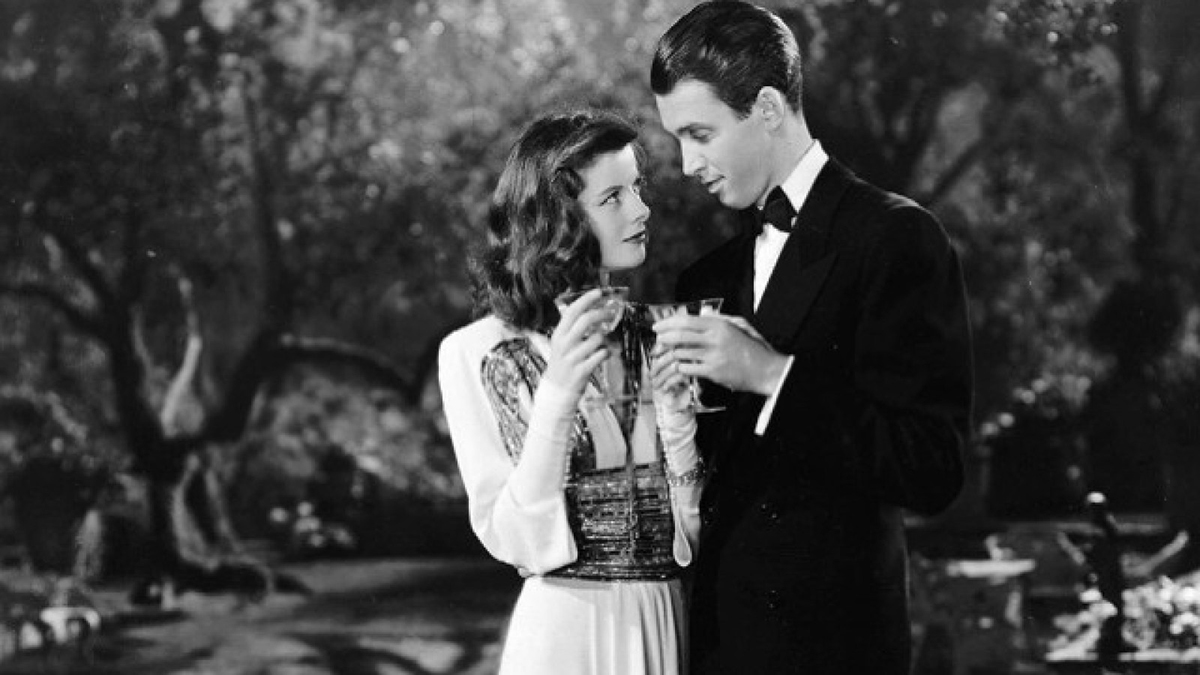
To many film lovers, the 21st century is synonymous with an era of throwaway movies marked by cash-grab sequels and prequels that nobody really asked for. Every year brings another batch of Marvel movies or dystopian thrillers that rake in millions of dollars, but most tend to leave our minds right after we walk out of the theater. For many, going to the movies has lost the sense of thrill and anticipation that used to encourage us to watch the latest box office hit somewhere away from our own couches. Despite hundreds of movies being churned out a year, the streaming era has made it harder than ever to find the ones worth watching. Yet much of Gen Z hasn’t even heard of, much less seen, some of the most iconic films that cinema has to offer. From Casablanca to It Happened One Night to West Side Story, the Golden Age of Hollywood spawned an entire canon of movies that have the potential to change your entire perception of film.
Hollywood’s Golden Age still represents the pinnacle of American cinema. Spanning from the 1930s to the 1960s, this era of filmmaking produced some of the most iconic movies and stars in film history and shaped the industry into what it is today. While the era officially ended in the 1960s, the legacy of Hollywood’s Golden Age continued well into the 1970s.
This period marks the Hollywood studio system at its peak. In the Golden Age, Hollywood studios were vertically integrated and controlled every aspect of the filmmaking process – studios owned production facilities, distribution networks, and even theater chains. This allowed studios to churn out movies quickly and efficiently – even more so than today – creating a vast catalogue of films that continue to captivate audiences who appreciate them.

The Golden Age of Hollywood is also characterized by the emergence of some of the most iconic stars in history whose names have managed to escape the radar of newer generations. Known for her distinctive voice, intense eyes, and powerful performances, Bette Davis appeared in more than 100 films throughout her career and is considered one of the most iconic actresses of all time. Davis won two Academy Awards for Best Actress for her roles in Dangerous (1935) and Jezebel (1938), and was nominated for eight more. She was a trailblazer for women in Hollywood, challenging traditional gender roles and fighting for better roles for women and more control over her own career.
Other must-know stars include Clark Gable, one of Hollywood’s most legendary and prolific leading men, known for his rugged good looks, charismatic onscreen presence, and appearances in over 60 films. There’s also Fred Astaire, the actor, dancer, and choreographer who is widely regarded as one of the 20th century’s greatest all-around entertainers, known for his signature elegance and precision. These 30s and 40s A-listers starred alongside other Hollywood pioneers like Ginger Rogers, Rita Hayworth, Gregory Peck, Cary Grant, Audrey Hepburn, and a slew of others.
Start your education on the Golden Age of Hollywood with these 9 must-see films from the era.
Casablanca (1942)
Casablanca is a timeless classic from the Golden Age, directed by Michael Curtiz and starring Humphrey Bogart and Ingrid Bergman. Set during World War II, the film tells the story of Rick Blaine, a cynical nightclub owner in the Moroccan city of Casablanca. When his former lover, Ilsa Lund, shows up with her resistance leader husband, Victor Laszlo, Rick must choose between his own selfish desires and doing the right thing.
It Happened One Night (1934)
It Happened One Night is a classic romantic comedy from 1934, directed by Frank Capra and starring Clark Gable and Claudette Colbert. It follows the story of Ellie Andrews, a spoiled heiress who escapes her controlling father’s yacht and sets out to New York to reunite with her new husband. Along the way, she meets Peter Warne, a cynical newspaper reporter who agrees to help her in exchange for a juicy news story. As they embark on a series of misadventures, Ellie and Peter begin to develop an unlikely attraction to each other.
All About Eve (1950)
All About Eve is a 1950 drama directed by Joseph L. Mankiewicz and starring Bette Davis, Anne Baxter, and George Sanders. It’s the story of Eve Harrington, a young and ambitious actress who inserts herself into the life of Broadway star Margo Channing and eventually threatens to steal her spotlight. Through Eve’s manipulations and deceit, she rises to the top of the theatre world, while Margo struggles to hold on to her career and her sanity. The film explores themes of ambition, jealousy, and betrayal, and features some of the most iconic performances in Hollywood history, including Davis’s portrayal of Margo and Sanders’s turn as acerbic theatre critic Addison DeWitt.
An American in Paris (1951)
An American in Paris is a 1951 musical film directed by Vincente Minnelli and starring Gene Kelly, Leslie Caron, and Oscar Levant. Set in post-World War II Paris, it follows the story of Jerry Mulligan, an ex-GI who decides to stay in the city to pursue his dream of becoming a painter. Along the way, he falls in love with Lise Bouvier, a beautiful and enigmatic French girl with a complicated past. As their romance blossoms, Jerry competes for Lise’s affections with another man while also navigating the challenges of his own artistic ambitions. An American in Paris is known for its stunning musical numbers, choreographed by Kelly himself, including the famous 17-minute ballet sequence set to George Gershwin’s symphonic poem of the same name.
Rebecca (1940)
Rebecca is a 1940 psychological thriller directed by the one-and-only Alfred Hitchcock, starring Laurence Olivier and Joan Fontaine. Based on the novel by Daphne du Maurier, the film is about a young woman who marries a wealthy widower, Maxim de Winter, and moves into his grand estate with him. However, she soon realizes that the memory of Maxim’s first wife, Rebecca, still haunts the estate and the people who live there. As she delves deeper into the mystery of Rebecca’s death, she becomes increasingly isolated and paranoid, resulting in one of the era’s most bone-chilling climaxes.
Roman Holiday (1953)
Roman Holiday, a 1953 romantic comedy, is directed by William Wyler and stars Audrey Hepburn, Gregory Peck, and Eddie Albert. The film tells the story of a young and sheltered European royal who sneaks out of her palace and meets American journalist Joe Bradley, who doesn’t recognize her and offers to show her around the city. As the two spend the day together, they fall in love, but Joe must decide whether to reveal Ann’s true identity and lose his exclusive story or keep her secret and let her enjoy her freedom. Roman Holiday is a charming and light-hearted film that captures the magic of Rome and features some of Hepburn and Peck’s most beloved performances.
How to Marry a Millionaire (1953)
How to Marry a Millionaire is a 1953 romantic comedy directed by Jean Negulesco and starring Marilyn Monroe, Betty Grable, and Lauren Bacall. In the modern world, this film still holds up as a must-watch girls night film. It’s about three young women who rent a luxurious penthouse apartment in New York City with the goal of marrying wealthy men. Each woman has her own reasons for seeking a wealthy husband, but as they navigate the world of high society and encounter various suitors, they learn valuable lessons about love and self-worth. How to Marry a Millionaire is a lighthearted film that showcases the comedic talents of its three leading ladies, as well as their glamorous fashion and style.
The Philadelphia Story (1940)
The Philadelphia Story is a 1940 romantic comedy directed by George Cukor and starring Katharine Hepburn, Cary Grant, and James Stewart. In the film, Tracy Lord is a wealthy and independent socialite who is about to marry her second husband. However, her plans are thrown into disarray when her ex-husband, C.K. Dexter Haven, shows up at her house with two reporters. As Tracy navigates her complicated relationships with the three men, she learns important lessons about love, trust, and self-discovery.
Singin’ in the Rain (1952)
Singin’ in the Rain is a 1952 musical comedy – one of the most iconic of all time – directed by Gene Kelly and Stanley Donen, and starring Kelly, Donald O’Connor, and Debbie Reynolds. Set in Hollywood during the transition from silent films to talkies, the film follows Kelly’s Don Lockwood, a successful movie star, and his friend Cosmo Brown as they struggle to adapt to the new technology and save their studio’s latest film from disaster. Along the way, Lockwood falls in love with aspiring actress Kathy Selden. The musical’s title song is still one of today’s most beloved and well-known.


